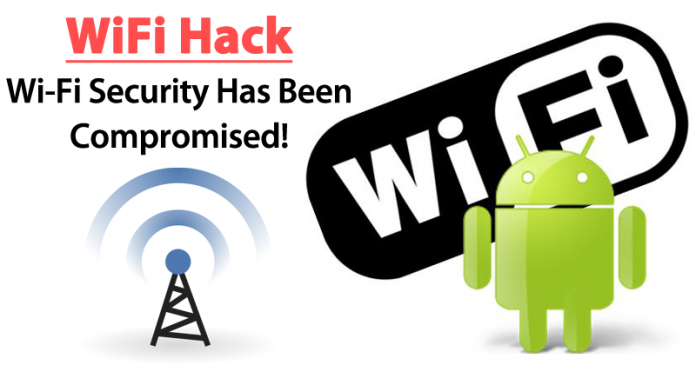Researchers have managed to find critical vulnerabilities in the 13-year-old protocol that permit hackers within the range of the network to extract the Wifi password and intercept internet traffic.

We all know about WiFi Protected Access II which is also known as WPA2 in short. WPA2 is one of the most common encryption protocol adopted by wireless technologies. You can find WPA2 encryption in a home, public cafes and on several industries.
Recently, researchers have discovered something shocking! Researchers have managed to find critical vulnerabilities in the 13-year-old protocol that permit hackers within the range of the network to extract the Wifi password and intercept internet traffic.
The reason why this vulnerability can make a big impact in today’s digital world is that WPA2 encryption is used by almost everyone now. So, this vulnerability makes everyone prone to hacking.
Hackers can also use this vulnerability to access any kind of unencrypted traffic between the device and access point. Further possibilities also include content injection.
Actually, the flaw lies in the WPA 4-way handshake which is used to create an encryption key to secure the internet traffic. Researchers claim that the vulnerability can be seen in action in the form of a proof-of-concept known as Key Reinstallation Attacks (KRACK).
A new website which goes by the name krackattacks.com had described the flaw in details. It had mentioned that the following CVEs carrying more details will be published soon:

We all know about WiFi Protected Access II which is also known as WPA2 in short. WPA2 is one of the most common encryption protocol adopted by wireless technologies. You can find WPA2 encryption in a home, public cafes and on several industries.
Recently, researchers have discovered something shocking! Researchers have managed to find critical vulnerabilities in the 13-year-old protocol that permit hackers within the range of the network to extract the Wifi password and intercept internet traffic.
The reason why this vulnerability can make a big impact in today’s digital world is that WPA2 encryption is used by almost everyone now. So, this vulnerability makes everyone prone to hacking.
Hackers can also use this vulnerability to access any kind of unencrypted traffic between the device and access point. Further possibilities also include content injection.
Actually, the flaw lies in the WPA 4-way handshake which is used to create an encryption key to secure the internet traffic. Researchers claim that the vulnerability can be seen in action in the form of a proof-of-concept known as Key Reinstallation Attacks (KRACK).
A new website which goes by the name krackattacks.com had described the flaw in details. It had mentioned that the following CVEs carrying more details will be published soon:
- CVE-2017-13077
- CVE-2017-13078
- CVE-2017-13079
- CVE-2017-13080
- CVE-2017-13081
- CVE-2017-13082
- CVE-2017-13084
- CVE-2017-13086
- CVE-2017-13087
- CVE-2017-13088
- Always use HTTPS over HTTP
- Don’t send confidential details over unencrypted networks
- Using a VPN service could add an extra layer of security
- Restrict yourself from visiting unknown sites, and don’t use public WiFi unless it’s necessary.
